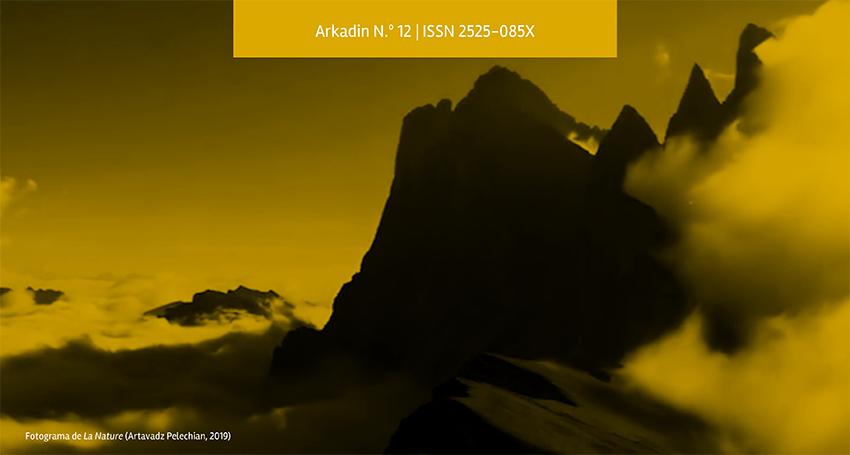Historia(s) de un cine legible
DOI:
https://doi.org/10.24215/2525085Xe053Keywords:
Film, Modernity, Authorship, Criticism, TheoryAbstract
The article reviews Caligrafías de la imagen by David Oubiña, which provides a historical and analytical study of the notion of authorship in modern cinema, from the origins of the politique des auteurs to its contemporary redefinition. By examining the origins of cinematic authorship through critical and theoretical elaborations, Oubiña offers a comprehensive analysis of this category. The article explores not only its implications as a critical tool and weapon in artistic, cultural, and political debates, but also its importance in the conception of modern cinemas. It becomes a guiding thread that allows us to appreciate the survivals of modernity on present texts and screens, as well as some paradoxes of its contemporary understanding.References
Antonioni, M., Bresson, R., Buñuel, L., Dreyer, C., Renoir, Hawks, H., Hitchcock, A., Lang, F., Renoir, J., Rossellini, R.
Welles, O. (2003). La política de los autores. Entrevistas. Paidós
Browne, N. (1990). Cahiers du cinéma 1969-1972. The Politics of Representation [Cahiers du cinéma. La política de la
representación]. Harvard University Press.
Caughie, J. (1981). Theories of Authorship[Teorías de autoría]. Routledge & Kegan - BFI.
De Baecque, A. (1991a) Histoire d’une revue. Tome 1: Les cahiers al assault au cinéma (1951-1959) [Historia de una
revista. Tomo 1. Los Cahiers al asalto del cine (1951-1959)]. Editions de l’etoile.
De Baecque, A. (1991b). Histoire d’une revue. Tome 2: Cinéma, tours et détours [Historia de una revista. Tomo 2. Cine,
recorridos y desvíos]. Editions de l’etoile.
De Baecque, A. (2003) La cinéphilie. Invention d’un regard, histoire d’une culture [La cinefilia. Invención de una
mirada, historia de una cultura]. Fayard.
Hillier, J. (1985). Cahiers du cinéma, The 1950s: Neo-realism, Hollywood, New Wave [Cahiers du cinéma. Los años
cincuenta. Neorrealismo, Hollywood, nueva ola]. Harvard University Press
Hilllier, J. (1986). Cahiers du cinéma, The 1960s: 1960-68. New Wave, New Cinema. Re-evaluating Hollywood [Cahiers
du cinéma. Los años sesenta (1960-68. Nueva ola, nuevo cine. Reevaluando a Hollywood)]. Harvard University Press.
Hodsdon, B. (2017). The Elusive Auteur. The Question of Film Authorship Throughout the Age of Cinema [El autor
elusivo. La cuestión de la autoría cinematográfica a través de la era del cine]. McFarland.
Oubiña, D. (2023). Caligrafías de la imagen. De la política de los autores al cine de autor. Prometeo
Downloads
Published
How to Cite
Issue
Section
License

This work is licensed under a Creative Commons Attribution-NonCommercial-ShareAlike 4.0 International License.
The acceptance of the manuscript by the magazine means the non-exclusive cession of the property rights of the authors in favour of the editor, who allows the reuse, after publication (post print), under a license Attribution-NonCommercial-NoDerivatives 4.0 International.
According to these terms, the material can be copied and redistributed by any means or in any format as long as a) the author and original source of the publication are quoted (magazine and URL of the work), access to the license is provided and whether changes have been made is mentioned; and b) the material is not used for commercial purposes.
The cession of non-exclusive rights means that after the publication (post print) in Arkadin the authors can publish their work in any language, means and format; in such cases it must be mentioned that the material was originally published in this magazine. Such cession also means the authorization of the authors for the work to be collected by SEDICI, the institutional archive of the Universidad Nacional de La Plata, and to be spread in the databases that the editorial team considers appropriate to increase the visibility of the publication and its authors.
Moreover, the magazine encourages the authors to deposit their productions in other institutional and thematic archives under the principle that offering the society the scientific and academic production without any restrictions contributes to a greater exchange of the global knowledge.
























